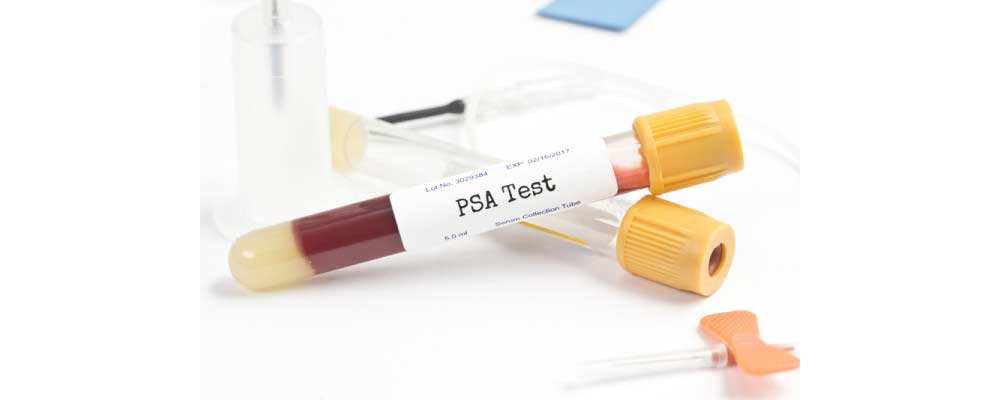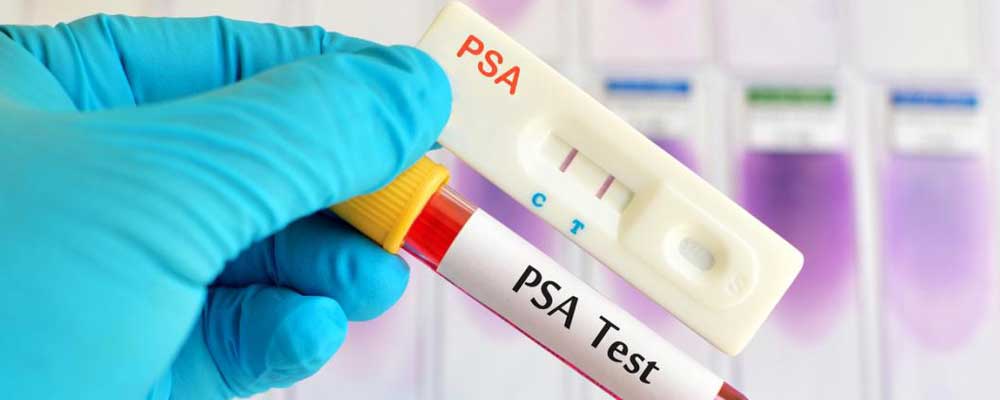Prostate cancer is one of the most common types of cancer among men. It occurs when abnormal cells grow in the prostate gland, which is a small organ that produces fluid for semen. Prostate cancer can cause symptoms such as difficulty urinating, blood in urine or semen, pain in the lower back or pelvis, and erectile dysfunction. However, some men with prostate cancer may not have any symptoms at all.
One way to detect prostate cancer early is by doing a blood test called the prostatespecific antigen (PSA) test. PSA is a protein that is produced by both normal and malignant (cancerous) prostate cells. The PSA test measures the level of PSA in the blood and can indicate if there is a problem with the prostate.
However, the PSA test is not perfect and has some pros and cons that you should consider before deciding whether to have it or not.
Here are some of the main advantages & disadvantages of PSA testing for Prostate Ccancer.
Pros of PSA Testing
PSA TESTING CAN HELP FIND PROSTATE CANCER EARLY
Prostate cancer can be more easily treated and cured if it is found at an early stage before it spreads to other parts of the body. PSA testing can help detect prostate cancer when it is still confined to the prostate gland or nearby tissues.
PSA TESTING CAN HELP MONITOR THE RESPONSE TO TREATMENT
If you have been diagnosed with prostate cancer and are undergoing treatment, such as surgery, radiation therapy, or hormone therapy, PSA testing can help your doctor check how well the treatment is working. A decrease in PSA levels after treatment usually means that the cancer is shrinking or disappearing. A rise in PSA levels may mean that the cancer is growing or coming back.
PSA testing can help assess the risk of prostate cancer recurrence. If you have been treated for prostate cancer and are in remission, PSA testing can help your doctor monitor your condition and detect any signs of recurrence. A low and stable PSA level usually means that the cancer has not come back. A high or rising PSA level may mean that the cancer has returned or spread to other parts of the body.
Cons of PSA Testing
PSA TESTING CAN LEAD TO FALSE-POSITIVE RESULTS
A false-positive result means that the PSA test shows a high level of PSA in the blood, but there is no cancer present. This can happen because other factors besides cancer can affect PSA levels, such as age, race, prostate size, infection, inflammation, benign prostatic hyperplasia (BPH), ejaculation, and certain medications. A false-positive result can cause unnecessary anxiety, stress, and further tests or procedures that may have risks or side effects.
PSA TESTING CAN LEAD TO FALSE-NEGATIVE RESULTS
A false-negative result means that the PSA test shows a normal or low level of PSA in the blood, but there is cancer present. This can happen because some types of prostate cancer do not produce much PSA or because the PSA level varies over time. A false-negative result can delay the diagnosis and treatment of prostate cancer and reduce the chances of survival.
PSA TESTING CAN LEAD TO OVERDIAGNOSIS & OVERTREATMENT
Overdiagnosis means that the PSA test detects prostate cancer that would not have caused any symptoms or harm during a man's lifetime. Overtreatment means that a man receives treatment for prostate cancer that he does not need or that causes more harm than good. Some types of prostate cancer are very slow-growing and may never cause any problems or affect a man's lifespan. However, it is not easy to tell which cancers are harmless and which are aggressive. Therefore, some men may undergo unnecessary treatments such as surgery, radiation therapy, or hormone therapy that can cause serious side effects such as impotence, incontinence, infection, bleeding, pain, fatigue, and loss of quality of life.

How do I know if I need a PSA test?
The decision to have a PSA test for prostate cancer screening is a personal one that depends on many factors, such as your age, race, family history, health status, preferences, values, and goals.
The best way to make an informed decision is to talk to your urologist about the pros and cons of PSA testing for your specific situation. Your urologist can help you understand your risk factors for prostate cancer, explain what the PSA test can and cannot tell you about your prostate health, and discuss the possible outcomes and implications of the test results. You should also consider your personal feelings and preferences about screening, diagnosis, and treatment of prostate cancer.
Ultimately, the choice is yours. You should weigh the potential benefits and harms of PSA testing and decide what is best for you. Whatever you decide, you should share your decision with your doctor and follow up with regular check-ups and exams to maintain your prostate health.

Dr Shyam Varma is a Consultant Laparoscopic/ Robotic Urologist & Renal Transplant Surgeon. He has over 15 years of experience in successfully treating complex urological diseases. His expertise includes diagnosing & treating Kidney stones, prostate enlargement, prostate cancer, kidney cancer, bladder cancer & incontinence, male infertility & erectile dysfunction.
